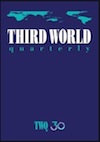by Stephen Browne and Thomas G. Weiss
Abstract

'Sustainable development’ – as currently and politically correctly formulated – provides an inappropriate basis on which to frame a future-oriented UN agenda, and risks perpetuating patterns of assistance in which most UN organisations perform poorly and in the shadow of alternative and more able multilateral and bilateral sources.
UN operations should take as their point of departure the comprehensive agenda outlined by the two world summits of 2000 and 2005. This agenda recognises the value-based UN as the only universal-membership organisation, which combines the concerns of satisfying human needs while ensuring security, human rights, justice and sound governance. The post-2015 agenda should not repeat the mistake of looking only at development and environment but aspire to what a million global voices canvassed by the UN in ‘the world we want’ campaign are clamouring for.
In a draft 2012 report, UN Secretary-General Ban Ki-moon welcomed "a transparent and inclusive dialogue on the longer-term positioning of the United Nations development system (UNDS) in the rapidly changing development cooperation environment". The purpose of such a dialogue would be "to further define the value proposition of the operational activities of the UN". The secretary-general understands that the changing aid environment has far-reaching implications for the roles of the more than 30 organisations that comprise the UNDS. Virtually all are members of the UN Development Group (UNDG) but comprise a ‘system’ in name only because each operates autonomously.
The United Nations has been both a source of ideas and a provider of technical services. However, these two roles have meshed poorly, and the UN has not always been effective in putting its best ideas into practice or in persuading states, civil society and the for-profit sector to sign on. The ongoing debate on the UN’s post-2015 agenda revolves around ‘sustainable development’, a three-pronged sectoral approach that, if past is prelude, will provide the new framework for the operational activities of the world organisation.
In forging the new post-2015 development agenda and future operations, which voices, at which decibel levels, should guide UN secretariats and influential member states? In order to answer that question, this essay briefly explores the dual contributions of ideas and operations before parsing the organisation’s comparative advantage, combining its security and development roles. Next, it probes the ideational and operational contrasts between sustainable and human development and concludes with a plea for norm-driven rather than technical efforts.
The United Nations is an under-appreciated source of development wisdom. It is no exaggeration that many UN ideas have ‘changed the world’. A partial list includes human rights, gender equality, human development, environmental sustainability, human security, fairer economic relations and global development goals. These ideational milestones have been facilitated by different UN organisations, which – despite popular views to the contrary – have attracted some of the most creative minds labouring in development vineyards.
The United Nations has been less successful, however, in translating ideas into practice and in persuading governments, civil society and businesses to implement them. There is a lack of coherence within the world organisation. What then is the ‘S’ in the UNDS acronym? The word connotes far more centralisation than actually is the case, which is why many set aside ‘system’ in favour of ‘family’ because, like many such units, the UN one is dysfunctional. In fact, the UN has more in common with feudalism than with a modern organisation.
If the UN system were a system, the never-ending discussions of reform would be about ‘how’ not ‘whether’. Radical reform has been elusive, change at best incremental and piecemeal. Former UN deputy secretary-general Mark Malloch-Brown summarises: "a long period of tinkering with the UN machinery may actually allow the growing gap between performance and need to increase…the call for reform is likely to grow steadily" and "the question remains when not if."
This article was published online by Third World Quarterly on 20 May 2014
Ref: Stephen Browne & Thomas G. Weiss (2014): The future UN development agenda: contrasting visions, contrasting operations,
Third World Quarterly, DOI: 10.1080/01436597.2014.915160
Stephen Browne is co-Director of the Future United Nations Development System (FUNDS) Project.
Thomas G. Weiss is the Director of the Ralph Bunche Institute for International Studies, Presidential Professor of political science at the CUNY Graduate Center, and co-Director of the FUNDS Project.
